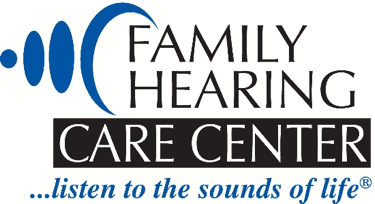
Safeguarding Your Balance: The Crucial Link Between Hearing Loss and Fall Prevention
Maintaining a sense of balance is a fundamental aspect of our daily lives, influencing our ability to move confidently and go about routine activities without the fear of stumbling or falling. As a hearing professional, it’s imperative to recognize the intricate connection between hearing loss and balance, and how addressing hearing impairment can play a pivotal role in preventing falls and accidents. In this article, we’ll delve into the intricate relationship between hearing loss and balance, explore the latest advancements in prevention, diagnosis, and management, and underline the transformative impact of hearing aids in enhancing overall well-being.
The Connection Between Hearing and Balance
The inner ear, a delicate structure responsible for both hearing and balance, plays a crucial role in ensuring our stability. The vestibular system, situated within the inner ear, works in tandem with auditory cues to provide a comprehensive understanding of our spatial orientation. When hearing is compromised, as is the case with hearing loss, this delicate equilibrium is disrupted, significantly impacting one’s ability to maintain balance.
Research has consistently highlighted the correlation between hearing loss and an increased risk of falls, especially among older adults. A landmark study published in the Journals of Gerontology demonstrated that individuals with untreated hearing loss were nearly three times more likely to experience a fall compared to their counterparts with normal hearing. This stark association underscores the need for a proactive approach to address hearing impairment as an integral component of fall prevention strategies.
The Role of Hearing Aids
Hearing aids, long regarded as essential tools for improving auditory function, have emerged as powerful allies in the quest to prevent falls and accidents. Modern hearing aid technology has evolved significantly, not only in enhancing sound perception but also in contributing to a more robust sense of balance.
One key mechanism through which hearing aids aid in fall prevention is by restoring auditory input that is essential for spatial awareness. Sounds such as footsteps, approaching vehicles, or environmental cues are vital for maintaining situational awareness, enabling individuals to respond promptly to changes in their surroundings. By ensuring these auditory cues are amplified and clear, hearing aids contribute significantly to reducing the risk of trips, slips, and falls.
Early Detection and Intervention
Crucially, the journey towards fall prevention begins with early detection of hearing loss. As a hearing professional, promoting routine hearing screenings and encouraging individuals to seek assistance at the first signs of hearing impairment is paramount. Early intervention not only helps preserve auditory function but also mitigates the associated risks to balance and stability.
In recent years, advancements in diagnostic tools have streamlined the identification of hearing loss. Audiometric assessments, coupled with cutting-edge imaging techniques, enable a comprehensive understanding of the extent and nature of hearing impairment. This precision allows for tailored interventions that address specific auditory deficits, thereby optimizing the chances of restoring balance and reducing the risk of falls.
Future Perspectives
Looking ahead, the landscape of hearing loss prevention and management holds promising prospects. Researchers are exploring futuristic interventions, including gene therapies and regenerative medicine, aiming to restore damaged auditory cells and enhance overall vestibular function. While these interventions are still in their infancy, they inspire hope for a future where hearing loss may be addressed at its root, preventing not only auditory decline but also safeguarding balance and preventing falls.
In the realm of hearing health, the significance of balance cannot be overstated. As a hearing professional, your role extends beyond the realms of auditory care; it encompasses the broader domain of ensuring overall well-being. By understanding the intricate link between hearing loss and balance, advocating for early detection, and harnessing the transformative power of modern hearing aids, you contribute significantly to the prevention of falls and accidents. In this journey, compassion and empathy play pivotal roles, reminding us that the pursuit of better hearing is, fundamentally, a pursuit of a safer and more fulfilling life.
